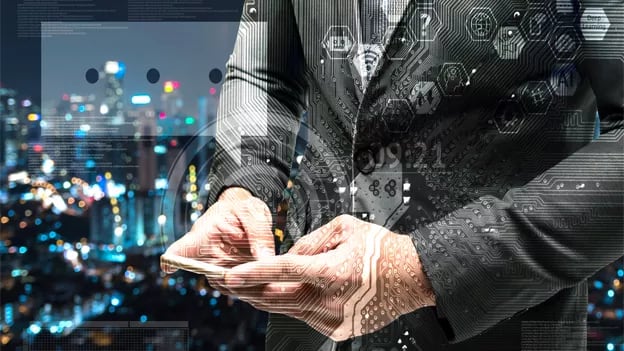Who's Afraid of Mr. Bot?


Change brings opportunity – Nido Qubein.
Nanorobotic heart surgery is already being conducted in advanced hospitals. Uber is testing flying cars. NASA is working on a Robot-soldier that can take down a terror camp. Elon Musk wants to start a human colony on Mars.
Technology is driving us to a brave new world, the Internet of Things is changing the landscape dramatically, our devices are alive and talking to each other, robots have entered the workplace and are performing increasingly complex tasks and Artificial Intelligence is making machines smarter every day.
The question is how much smarter? Will they take away our jobs? Will they take over our lives? Will they eliminate the need for us altogether?
Fear is not an Option
I think the more important thing to worry about is how to keep our minds flexible. We need to constantly learn new skills, adapt to the changing environment, stay alive to new possibilities, learn, unlearn and relearn. Anyone who does not see an opportunity in times of critical change is liable to perish. This is not about humans vs. machines; this is about humans and machines.
AI, VR, RPA and a whole slew of other Cloud-based and digital delivery platforms are going to determine how the businesses of tomorrow operate and the jobs of tomorrow are defined. This in turn will impact the kind of roles and skills required in the workforce, which in turn will necessitate the creation of a new learning eco-system of the future. We will need to partner, collaborate and co-create in order to facilitate innovative commercial models for participants in the value chain to invest in skilling and reskilling. Disruption is creating such a redundancy of skills that learning is more critical than ever before, making it necessary to completely reskill ourselves every 7-10 years, while also learning continuously.
Learning to Survive
When people today are asked “what percentage of the knowledge required for your job do you have”, they typically answer in the 50-60 percent range, down from over 90 percent in the mid-20th century. Ask an employee today, “Who do you go to, to learn about a new topic”, and very few will point to either their boss or a training program, they will probably say “Google” or a “community” or some “forum”. Our learning ecosystems now extend far beyond formal training to non-traditional assets such as expert forums, search engines, open-source content, peer networks and knowledge management. For people to be job-ready and relevant, they will need to invest in their skill development, and in addition to that, the Government, companies and universities need to work very fast to put in place the right enablement programs.
This process has already begun — work is underway on proficiency levels and certification types, curriculum and content, delivery systems and assessment programs. These enablement programs will probably be delivered differently from before. They will need to be more digital and virtual-led, so that students can avail of a bank of knowledge from around the world, versus being limited to only what a specific teacher can teach. We need a skilling process that is continuous and based on self-learning, rather than a one-time certification system. The good news is that people know that this is needed and have already begun to work with speed and urgency to make this a reality.
As an example, Genpact is building one of the world’s largest and best Robotic Process Automation (RPA) capabilities. We are rapidly training large numbers of people to take on RPA developer and Architect jobs.
This is being done through a combination of videos (using the best open source content from across the world), classrooms (using the partner eco-system that is rapidly developing to support this), and lab work/coaching practices (the basics of operations training that a firm like Genpact has always excelled at).
The Human Element: Have you got it Mr. Bot?
I would like to think that in the future, there will always be space for creativity, curiosity, imagination, intuition, instinct and emotional sensitivity. What makes us human is a unique combination of objective and subjective reasoning. And all of life cannot be reduced to an algorithm. But we do need to stay agile and alive to change, and we do need to keep relearning, reskilling and re-equipping ourselves — to make sure we keep one step ahead of Mr. Bot!


